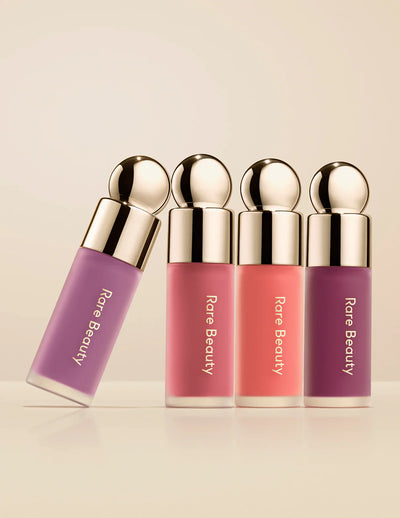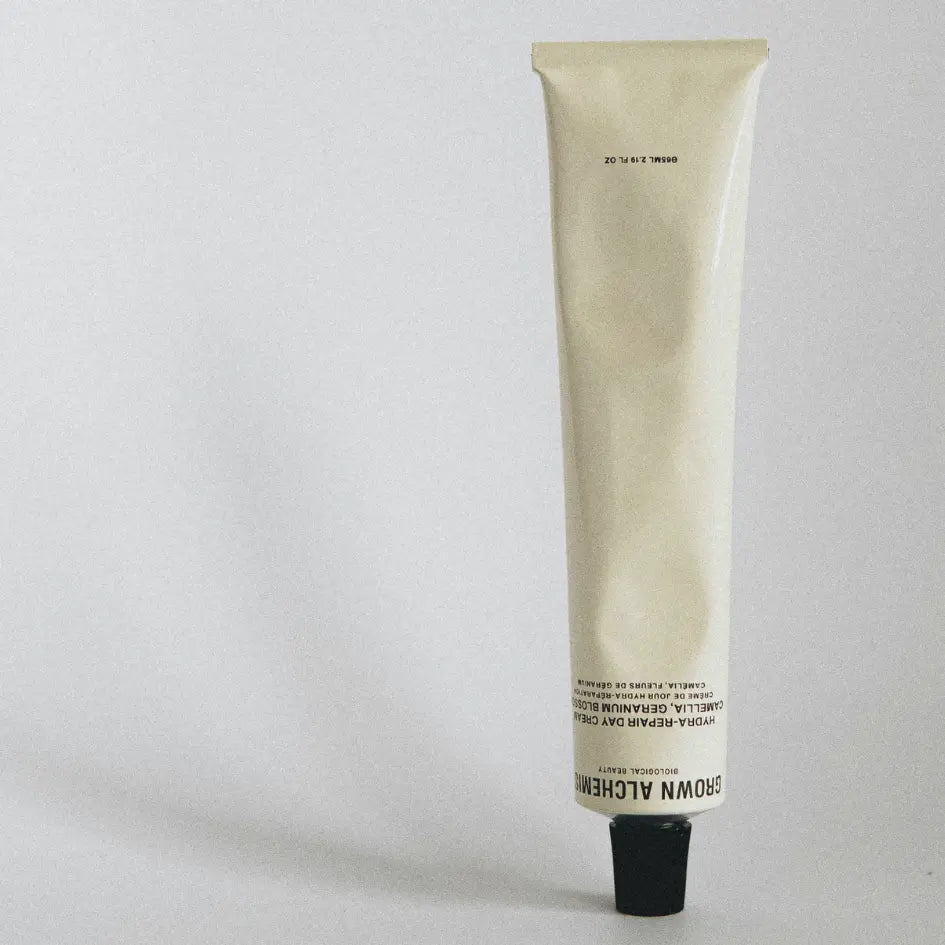Packaging
Many product bottles (e.g. foundation, concealer) are made of durable materials like glass with minimal plastic. However, most primary packaging (compacts, tubes, caps) still relies on virgin plastic or mixed materials.
All shipping components (boxes, welcome cards, tissue, and even tape) are made from recycled fiber that's 100% recyclable and FSC certified. The brand also uses water-based inks for printing. The brand acknowledges it is “an ongoing journey” and has only gradually started integrating post-consumer recycled (PCR) content into product containers since late 2021.
Ingredient Sustainability
The company follows European Union cosmetic standards, banning over 1,600 chemicals (including parabens, formaldehyde releasers, phthalates, oxybenzone, and other persistent pollutants) from its formulations. Despite these efforts, there remain significant sustainability concerns with Rare Beauty's raw materials. Many product formulas still contain common cosmetic synthetics (silicones like dimethicone, polymers, etc.) derived from petroleum, whose production has a high carbon footprint and is non-renewable.
The brand does not claim to use organic or regeneratively grown botanicals; most ingredients are standard lab-made or commodity chemicals, with no evidence of preferential sourcing from sustainable suppliers. Palm oil derivatives appear in some products (as emulsifiers or texture agents), yet Rare Beauty provides no information on whether these are RSPO-certified. Product ingredient lists include synthetic fragrances (parfum).
Energy Use and Footprint
When it comes to carbon footprint and emissions, Rare Beauty has no publicly stated goals or data. Rare Beauty's products are manufactured in various global locations and then distributed to the U.S. and dozens of other countries. This global supply chain entails carbon emissions from factory energy use (often fossil-fuel based) and long-distance shipping. Rare Beauty has made no claims of using renewable energy in production or of offsetting emissions.
Waste Management
Beyond packaging, Rare Beauty has no formal take-back or recycling program for its product containers, and it does not address the end-of-life of its products. Rare Beauty also participates in the typical beauty product cycle of frequent new launches and limited editions, which can create waste through unsold inventory or short-lived products. There is no information available regarding waste mitigation in production.
Business Model
Rare Beauty's business model is consumption-driven, albeit with a social-good twist. It relies on ongoing sales and frequent product expansion, and thus far hasn't differentiated itself with practices like refills, subscription recycling, or capsule collections.



